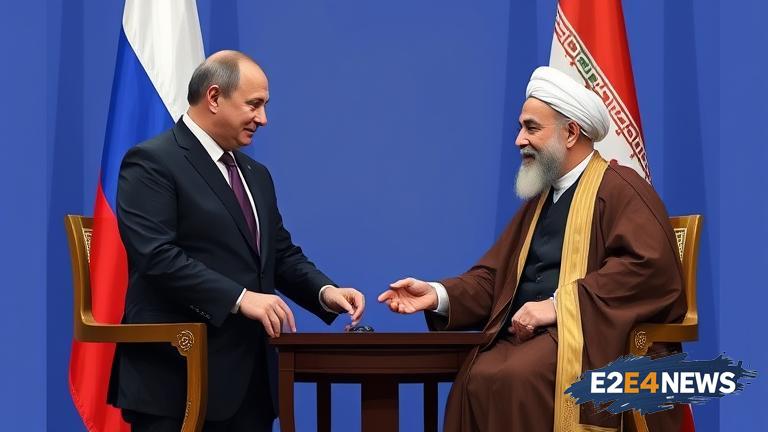Russia and Iran have commenced diplomatic talks focused on Iran’s nuclear programme, a development that could potentially have significant implications for global nuclear non-proliferation efforts. The discussions, which are being held in a cordial and cooperative atmosphere, underscore the deepening relationship between the two nations. Iran’s nuclear programme has been a subject of international concern for many years, with various countries expressing worries about the potential for nuclear weapons development. However, Iran has consistently maintained that its nuclear activities are solely for peaceful purposes, including energy production and medical research. The Russian-Iranian talks are seen as a positive step towards resolving the standoff over Iran’s nuclear programme, which has been a major point of contention between Iran and the international community. Russia, as a key player in global nuclear diplomacy, is well-positioned to facilitate a resolution to the issue. The discussions between Russia and Iran are expected to cover a range of topics related to Iran’s nuclear programme, including the implementation of the Joint Comprehensive Plan of Action (JCPOA), also known as the Iran nuclear deal. The JCPOA, which was agreed upon in 2015, imposed strict limits on Iran’s nuclear activities in exchange for relief from economic sanctions. However, the deal has been on shaky ground since the United States withdrew from it in 2018, citing concerns about Iran’s compliance and the deal’s failure to address other issues, such as Iran’s ballistic missile programme. Despite the challenges, Russia has remained committed to the JCPOA and has been working to preserve the agreement. The talks between Russia and Iran are also likely to address the issue of nuclear inspections and monitoring, which has been a point of contention between Iran and the International Atomic Energy Agency (IAEA). Iran has been accused of restricting access to certain nuclear sites, which has raised concerns about the possibility of undeclared nuclear activities. Russia has been urging Iran to cooperate fully with the IAEA and to provide unrestricted access to all nuclear sites. The Russian-Iranian talks are part of a broader effort to strengthen bilateral relations between the two countries, which have been growing closer in recent years. Russia and Iran have been cooperating on a range of issues, including energy, trade, and security, and have been working to expand their economic ties. The discussions over Iran’s nuclear programme are seen as an important step towards deepening the strategic partnership between Russia and Iran. The outcome of the talks is being closely watched by the international community, which is eager to see a resolution to the standoff over Iran’s nuclear programme. A successful outcome to the talks could help to reduce tensions in the region and promote greater stability and security. However, the challenges are significant, and it remains to be seen whether Russia and Iran can reach a mutually acceptable agreement. The talks are also being closely monitored by other countries, including the United States, which has been critical of Iran’s nuclear programme and has imposed strict sanctions on the country. The European Union has also been engaged in efforts to preserve the JCPOA and to promote a resolution to the standoff over Iran’s nuclear programme. As the talks between Russia and Iran continue, it is clear that the issue of Iran’s nuclear programme remains a complex and challenging one, requiring careful diplomacy and cooperation to resolve. The international community is hopeful that the Russian-Iranian talks will lead to a breakthrough and help to promote greater stability and security in the region. In conclusion, the diplomatic talks between Russia and Iran over Iran’s nuclear programme are a significant development that could have far-reaching implications for global nuclear non-proliferation efforts. The talks underscore the deepening relationship between Russia and Iran and highlight the importance of diplomacy and cooperation in resolving complex international issues.
